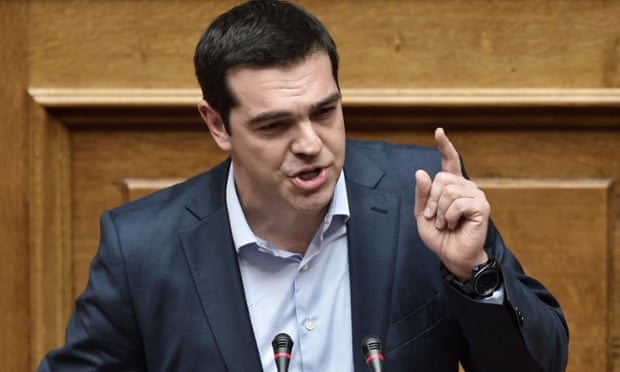EU summit to offer resettlement to only 5,000 refugees
Exclusive: Confidential draft from summit reveals that only 5,000 migrants will be allowed to resettle in Europe with large numbers likely to be repatriated
Alan Travis
Thursday 23 April 2015 10.43 EDT
Only 5,000 resettlement places across Europe are to be offered to refugees under the emergency summit crisis package to be agreed by EU leaders in Brussels on Thursday.
A confidential draft summit statement seen by the Guardian indicates that the vast majority of those who survive the journey and make it to Italy – 150,000 did so last year – will be sent back as irregular migrants under a new rapid-return programme co-ordinated by the EU’s border agency, Frontex. More than 36,000 boat survivors have reached Italy, Malta and Greece so far this year.
The draft summit conclusions also reveal that hopes of a major expansion of search-and-rescue operations across the Mediterranean in response to the humanitarian crisis are likely to be dashed, despite widespread and growing pressure.
The summit statement merely confirms the decision by EU foreign and interior ministers on Monday to double funding in 2015 and 2016 and “reinforce the assets” of the existing Operation Triton and Operation Poseidon border-surveillance operations, which only patrol within 30 miles of the Italian coast.
Exclusive: Confidential draft from summit reveals that only 5,000 migrants will be allowed to resettle in Europe with large numbers likely to be repatriated
Alan Travis
Thursday 23 April 2015 10.43 EDT
Only 5,000 resettlement places across Europe are to be offered to refugees under the emergency summit crisis package to be agreed by EU leaders in Brussels on Thursday.
A confidential draft summit statement seen by the Guardian indicates that the vast majority of those who survive the journey and make it to Italy – 150,000 did so last year – will be sent back as irregular migrants under a new rapid-return programme co-ordinated by the EU’s border agency, Frontex. More than 36,000 boat survivors have reached Italy, Malta and Greece so far this year.
The draft summit conclusions also reveal that hopes of a major expansion of search-and-rescue operations across the Mediterranean in response to the humanitarian crisis are likely to be dashed, despite widespread and growing pressure.
The summit statement merely confirms the decision by EU foreign and interior ministers on Monday to double funding in 2015 and 2016 and “reinforce the assets” of the existing Operation Triton and Operation Poseidon border-surveillance operations, which only patrol within 30 miles of the Italian coast.
